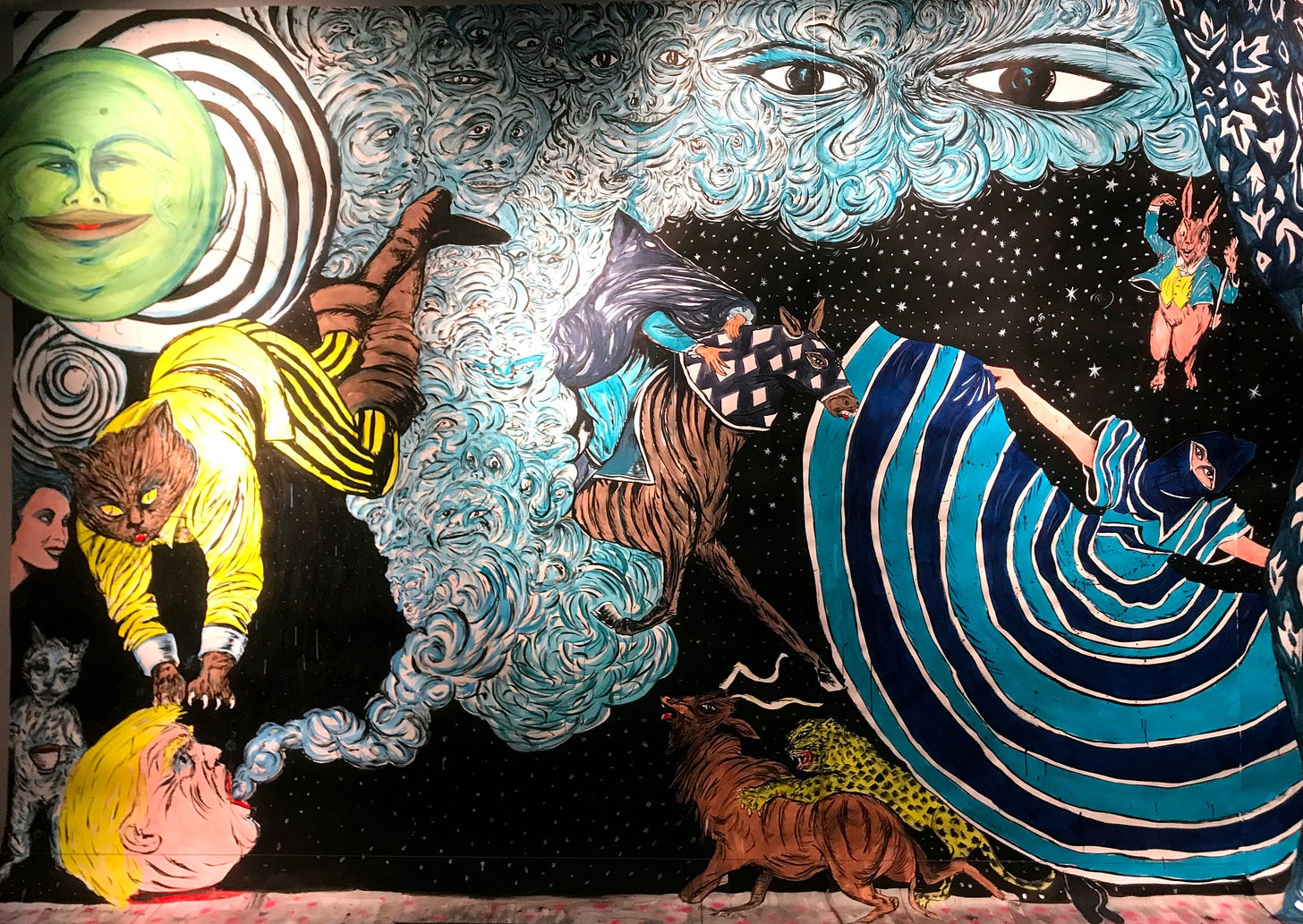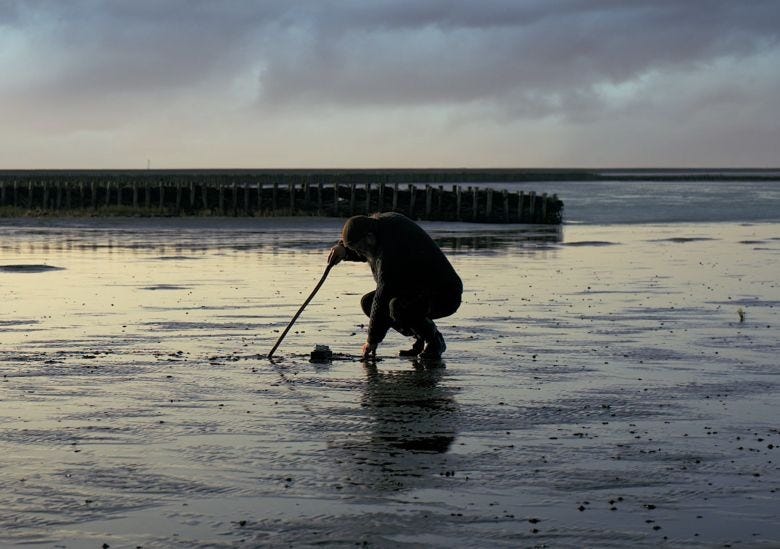What's on: Protest updates, water crisis on film, absurdist art & more
A biweekly roundup of art exhibitions, cultural events, and arts and culture news in Istanbul and elsewhere in Turkey.
Short Takes: Art exhibitions in brief 🖼
With carnival dancers in harlequin masks, stylish revolutionaries, and storybook witches, New York-based artist Marcel Dzama’s solo exhibition Dancing with the Moon turns the circus that is contemporary global politics into a visual theater of the absurd (to 17 August at Pera Museum, Meşrutiyet Caddesi No:65, Beyoğlu; open Tue-Sat 10am-7pm, Fri to 10pm, Sun noon-6pm; general admission 300 TL). The sobering archival exhibition Palestine from Above interrogates the ways this land has been conceptualized from outside – as “empty” desert, a site of military conquest, a religious theme park – to serve different political and ideological aims (to 25 January 2026 at ANAMED Gallery, İstiklal Caddesi Merkez Han No:181, Beyoğlu; open Tue-Sun 10am-7pm). Women’s roles and identities are the loose thread uniting the photographic works in the group show ‘Today, Everything Exists to End in a Photograph’ (to 5 April ⏰ at ArkKültür, Batarya Sokak No:2, Cihangir, Beyoğlu; open Mon-Sat 10am-6pm; SANAYI313 PAPER has a preview and a short interview with curator Beral Madra).
Filmmakers ask: Is this our last chance? 🎥
With everything else going on in the world, it’s all too easy to forget that climate change continues unabated, threatening to impact every aspect of our lives. SALT’s ongoing screening program Is this our last chance? features films trying to raise the environmental alarm before it’s too late. This season the focus is on water and its exploitation, from the grueling conditions aboard a fishing trawler in North America to the Bedouin communities struggling to access water in Jordan’s Wadi Rum desert to the massive cargo ships endlessly traversing our seas. All screenings are free, and films are in English or shown with English subtitles. For the full program, visit SALT’s website.
11 to 19 April
SALT Beyoğlu Walk-In Cinema
İstiklal Caddesi No:136
Protest updates: Boycotts and backlash ✊
Since I wrote last week about the intersections between the ongoing protests in Turkey and the worlds of art and culture, various cultural actors and institutions have been drawn deeper into current events. Most prominently, the British rock band Muse and the Norwegian singer Ane Brun have cancelled or postponed their scheduled Istanbul shows in response to online calls to boycott the promotion company. A student-led call for a full economic boycott on 2 April to protest the jailing of peers who had demonstrated against the arrest of Istanbul's mayor seems to have drawn tacit support from the Pera Museum, the Rezan Has Museum, and other cultural institutions that waived their admission fees on that day. And some artists are now calling for a boycott of the Türkiye Culture Route Festival, a multi-city event organized by the Turkish Culture and Tourism Ministry.
Meanwhile, German pianist Davide Martello, who played during the Gezi protests in 2013 and at other demonstrations and sites of conflict and violence around the world, said he was deported from Turkey (along with his piano) before a planned performance in Istanbul. And various Turkish actors have run afoul of an investigation opened into people who joined the boycott calls, with Cem Yiğit Üzümoğlu, the lead in the TV series Şakir Paşa Ailesi, detained; actor Aybüke Pusat removed from her role in the TV series Teşkilat on state-run TRT; the show Rumi removed from TRT’s digital streaming platform after its screenwriter Ali Aydın spoke out in support of Pusat and at least three other actors reportedly fired from various shows after making similar statements; and an additional group of actors’ Twitter/X accounts blocked in Turkey for joining boycott calls.
Recommended reads 📚
This excellent interview by Berin Golonu with artist Burak Arıkan from way back in from 2013 goes into detail about the collective project Networks of Dispossession that I mentioned in last week’s newsletter, a still very relevant initiative to map corporate and governmental connections in Turkey to illustrate patterns of accountability and systemic issues in construction and environmental degradation.
Photographer Bradley Secker breaks down the viral Pikachu memes from Turkey’s protests, how AI-generated versions of the original image spread like wildfire, and why the difference matters.
Critic Kaya Genç reviews Kurdish artist Cengiz Tekin’s recent solo exhibition at Zilberman Gallery in Istanbul, “Waves Don’t Draw Maps,” a body of work that he says blends humor with unease.
If you’ve jumped on the Studio Ghibli-fication trend, just stop already: My favorite tech critic Brian Merchant explains why “an AI company appropriating the work of a beloved animation studio… should not be underestimated as a menace.”
Georgian photographers who have covered months of protests in their capital, Tbilisi, say they are “deeply disturbed” at the awarding of a World Press Photo prize to a photographer working with the Russian state news agency TASS.
Open Caucasus Media reviews a new album that “turns Georgia’s protests into an oppressive soundscape, capturing both the exhaustion and resolve of a movement. Built from real protest sounds, it’s a haunting, Lynchian memoir of resistance.”





